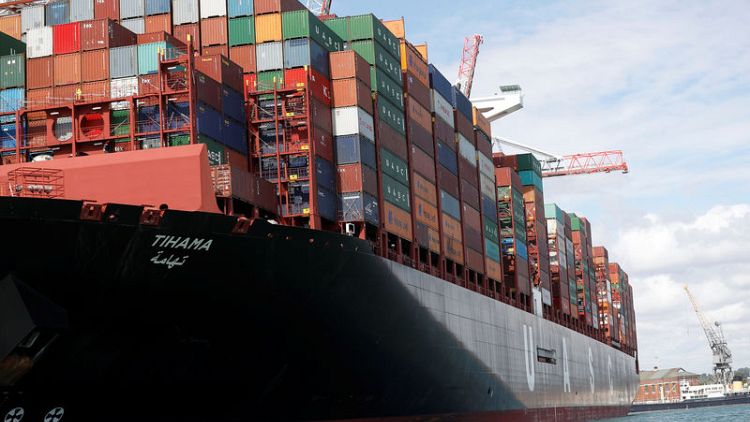LONDON (Reuters) - British factories suffered their worst month since just after 2016's Brexit vote in October, due to concerns about the country's approaching departure from the European Union and increased global trade tensions, a survey showed.
In the clearest sign to date that Britain's economy is slowing after a strong summer, the IHS Markit/CIPS Manufacturing Purchasing Managers' Index (PMI) fell sharply to 51.1, its lowest since July 2016, from a downwardly revised 53.6 in September.
The reading was weaker than all the forecasts in a Reuters poll of economists.
New order books and employment contracted for the first time since July 2016.
"October saw a worrying turnaround in the performance of the UK manufacturing sector," IHS Markit director Rob Dobson said.
"At current levels, the survey indicates that factory output could contract in the fourth quarter, dropping by 0.2 percent."
Foreign demand fell for the second time in three months with some companies saying Brexit uncertainties cost them work from within the EU.
Many manufacturers are worried about the risk of border delays which would affect their just-in-time processes.
Prime Minister Theresa May faces opposition to her Brexit plan from within her own Conservative Party while also so far failing to find common ground with other EU leaders, raising fears that Britain could leave the EU without a transition deal.
Other firms pointed to rising world trade tensions and weaker demand in the global automotive industry.
Manufacturing accounts for about 10 percent of Britain's economic output.
So far, the world's fifth-biggest economy has proven more resilient to the decision to leave the EU than many forecasters predicted at the time of the Brexit vote.
Strong spending by consumers over the summer caused growth to accelerate in the three months to August.
But there have been signs that the approach of Brexit in less than five months' time - with no agreement yet in place to smooth Britain's exit from the bloc - is weighing on companies.
Official figures show that manufacturing failed to contribute to economic growth in the first half of 2018.
The Bank of England, which is due to announce its monetary policy decision for November at 1200 GMT, is widely expected to keep interest rates on hold until it has more clarity on what Brexit will mean for Britain's economy.
Thursday's PMI showed input prices for British factories grew at their slowest pace in 28 months but still remained high due to rising prices for commodities and the Brexit hit to the value of sterling.
(Writing by William Schomberg; Editing by Hugh Lawson)



